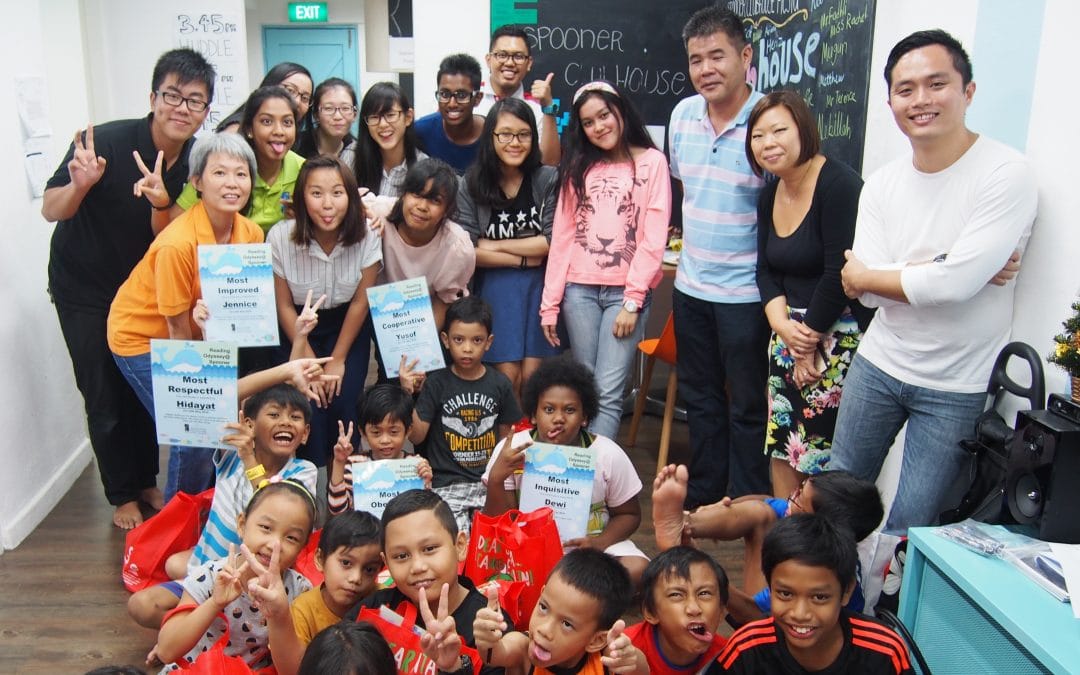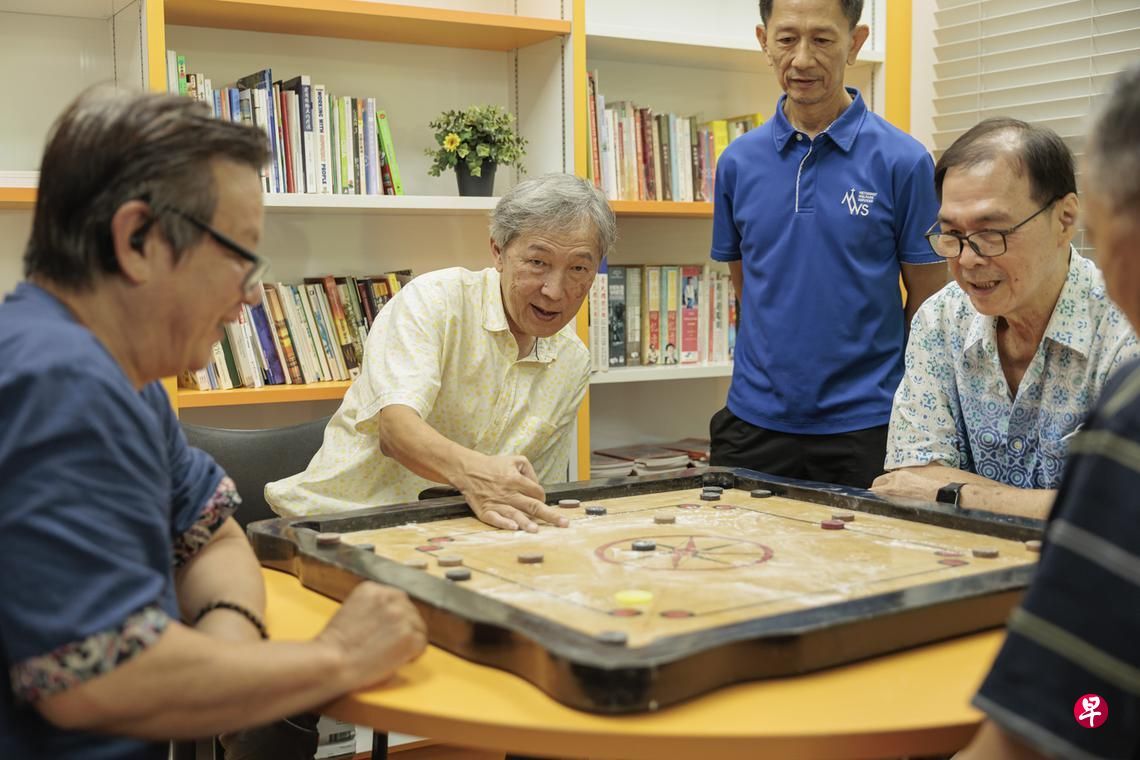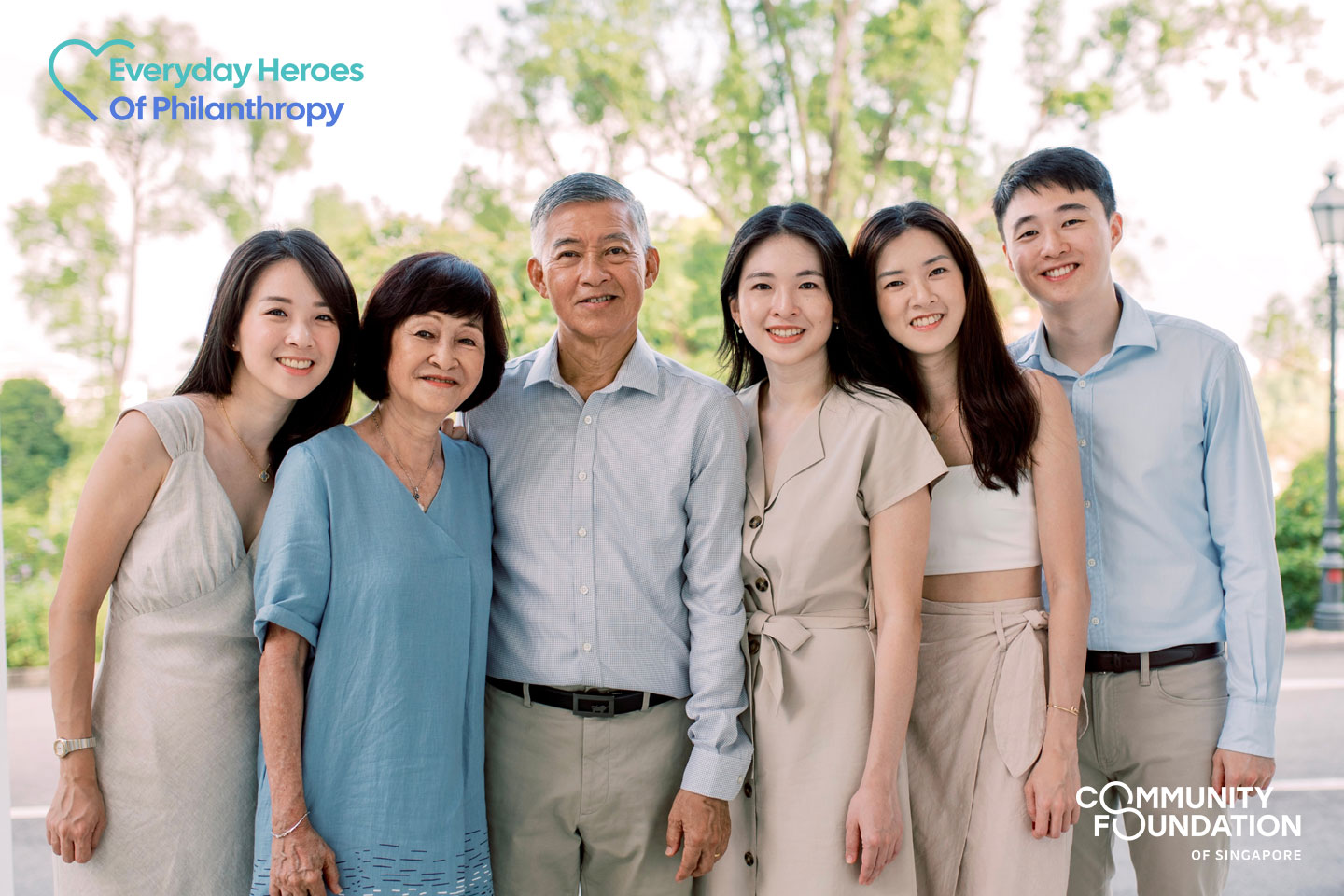The Spooner Road Project – Reaching children and youths at the margins


For vulnerable children and youths from disadvantaged families, daily life is often filled with myriad challenges. Many ‘troubled’ children and youths become at risk for delinquency and fail to complete school. Naturally, most of them don’t realise their full potential and may suffer from poor self-esteem or mental health issues.
As one of the few social work agencies with an added competency in educational psychology, Students Care Service (SCS) has an established track record of tackling issues faced by children and youths living at the margins. Today, it reaches over 6,500 children and youths each year through its centres and intervention programmes.
The unique challenges faced by one community along Spooner Road captured SCS’s attention, and led them to start the Spooner Road Project in mid-2015. At a recent site visit, the Community Foundation of Singapore (CFS) and other partners observed the dedication and efforts that are steadily impacting the Spooner Road community.
Located in an enclave of public rented flats in central Singapore, the Spooner Road centre is housed amidst a transient, vulnerable community of over 300 families. Many families often arrive here after losing their home due to financial issues. The physical isolation of these flats, which once served as the dormitories of railway workers, means everyday resources from healthcare to Family Service Centres (FSCs) are not easily accessible here. To help alleviate the difficulties faced by these families, CFS’s donor UBS funded a Foodshare programme where packed groceries were delivered to their doorsteps.
Many of the young living here struggle to access resources to support them as they learn and grow, exacerbated by the lack of spaces for play and constructive supervision by their caregivers.
To address the issues faced in this complex environment, the Spooner Road Centre offers a conducive, homely space for the young to spend time. The centre runs a range of supervised play sessions, study skills sessions, student football and special events, helping to keep these children and youths engaged in positive activities and decrease their risk of delinquency.
Another key area of impact is addressing the school readiness of the children living here. With some falling as far as two years behind their peers, the team at SCS identifies candidates for its Reading Odyssey Programme to help increase reading ability. SCS Social worker Tok Kheng Leng highlights the importance of these timely interventions, “When children first go to school already lagging behind their peers, it’s difficult for them to catch up. One side effect is they start to misbehave. It’s then a downward spiral of being labeled as deviant child.”
In early 2018, the team is looking forward to further bolster their existing efforts in improving school readiness. It’s looking to pilot a new programme, based on recent research, to empower students from disadvantaged backgrounds to achieve academic success. As Centre Director Lee Seng Meng explains, “We’re excited to be piloting these new strategies. If we can garner positive results, it would be very helpful when we work with other communities facing similar challenges.”
Photo: Students Care Service.
For vulnerable children and youths from disadvantaged families, daily life is often filled with myriad challenges. Many ‘troubled’ children and youths become at risk for delinquency and fail to complete school. Naturally, most of them don’t realise their full potential and may suffer from poor self-esteem or mental health issues.
As one of the few social work agencies with an added competency in educational psychology, Students Care Service (SCS) has an established track record of tackling issues faced by children and youths living at the margins. Today, it reaches over 6,500 children and youths each year through its centres and intervention programmes.
The unique challenges faced by one community along Spooner Road captured SCS’s attention, and led them to start the Spooner Road Project in mid-2015. At a recent site visit, the Community Foundation of Singapore (CFS) and other partners observed the dedication and efforts that are steadily impacting the Spooner Road community.
Located in an enclave of public rented flats in central Singapore, the Spooner Road centre is housed amidst a transient, vulnerable community of over 300 families. Many families often arrive here after losing their home due to financial issues. The physical isolation of these flats, which once served as the dormitories of railway workers, means everyday resources from healthcare to Family Service Centres (FSCs) are not easily accessible here. To help alleviate the difficulties faced by these families, CFS’s donor UBS funded a Foodshare programme where packed groceries were delivered to their doorsteps.
Many of the young living here struggle to access resources to support them as they learn and grow, exacerbated by the lack of spaces for play and constructive supervision by their caregivers.
To address the issues faced in this complex environment, the Spooner Road Centre offers a conducive, homely space for the young to spend time. The centre runs a range of supervised play sessions, study skills sessions, student football and special events, helping to keep these children and youths engaged in positive activities and decrease their risk of delinquency.
Another key area of impact is addressing the school readiness of the children living here. With some falling as far as two years behind their peers, the team at SCS identifies candidates for its Reading Odyssey Programme to help increase reading ability. SCS Social worker Tok Kheng Leng highlights the importance of these timely interventions, “When children first go to school already lagging behind their peers, it’s difficult for them to catch up. One side effect is they start to misbehave. It’s then a downward spiral of being labeled as deviant child.”
In early 2018, the team is looking forward to further bolster their existing efforts in improving school readiness. It’s looking to pilot a new programme, based on recent research, to empower students from disadvantaged backgrounds to achieve academic success. As Centre Director Lee Seng Meng explains, “We’re excited to be piloting these new strategies. If we can garner positive results, it would be very helpful when we work with other communities facing similar challenges.”
Photo: Students Care Service.
- Related Topics For You: ACCESSING QUALITY EDUCATION, CHARITY STORIES, CHILDREN, DONOR STORIES, STORIES OF IMPACT, YOUTH



